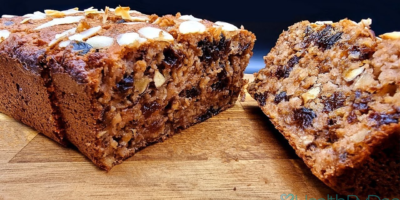Resistant weight can be a frustrating barrier in your weight loss journey, often leaving you feeling stuck despite your efforts. Many individuals wonder how to break resistant weight and explore various methods for losing resistant weight that can help them regain momentum. With practical resistant weight loss tips, such as adjusting meal frequency and incorporating detox strategies, you can effectively address this issue. By learning about your body’s mechanisms and how to navigate through them, you can emerge victorious in your quest for a healthier you.
When tackling the issue of stubborn weight, it’s vital to explore the concept of metabolic resistance, which describes the body’s tendency to hold onto fat during weight loss efforts. This phenomenon can manifest as persistent pounds that refuse to budge, leading many to seek effective techniques for overcoming these hurdles. Employing a range of strategies, from dietary adjustments to increased physical activity, can significantly enhance your ability to lose stubborn weight. Moreover, understanding the role of stress management and hydration in this process can provide additional support in your weight loss journey. By adopting a holistic approach and utilizing various methods, you can pave the way for successful and sustainable weight loss.
Resistant Weight: What You Need to Know
Resistant weight is a term that describes the plateau phase many individuals experience during their weight loss journey. It can be frustrating to witness a lack of progress despite following a diet and exercise regimen. This phenomenon occurs when your body adapts to the changes you’ve made, leading to a temporary halt in weight loss. Understanding this process is crucial for anyone trying to lose weight, as it helps to manage expectations and maintain motivation. By recognizing the signs of resistant weight, individuals can take proactive steps to overcome these hurdles and continue their weight loss journey.
The concept of resistant weight can be further understood by exploring how our bodies respond to calorie deficits. When you first begin losing weight, your body is in a caloric deficit, which leads to noticeable weight loss. However, as you lose weight, your metabolism may slow down, making it harder to shed additional pounds. This is a natural physiological response to protect your body from perceived starvation. To successfully navigate this phase, incorporating strategies such as adjusting your diet, increasing physical activity, or even altering your meal frequency can be effective.
How to Break Resistant Weight: Effective Strategies
Breaking through resistant weight requires a combination of determination and informed strategies. One effective method is to reassess your meal plan. If your current routine involves three meals a day, consider reducing it to two meals or replacing one with a nutritious snack. This can help stimulate your metabolism and encourage the body to tap into stored fat for energy. Additionally, incorporating detox drinks into your diet can aid in flushing out toxins and boosting weight loss efforts. These drinks, often rich in antioxidants, can help invigorate your metabolism and provide essential nutrients.
Another important aspect of breaking resistant weight is increasing your exercise intensity or frequency. As you lose weight, your body becomes more efficient at burning calories, which can result in a slowdown of weight loss. To counteract this, consider integrating high-intensity interval training (HIIT) or varying your workout routine to keep your body challenged. Tracking your physical activity and food intake meticulously can also provide insights into areas where adjustments may be needed, ensuring you remain on track towards your weight loss goals.
Methods for Losing Resistant Weight: An Overview
Several methods can be employed to effectively lose resistant weight. One of the most impactful strategies is adopting a low-carb diet. Research indicates that reducing carbohydrate intake can lead to a decrease in hunger, allowing individuals to consume fewer calories without feeling deprived. In addition, low-carb diets can promote the production of ketones, which are known to enhance feelings of fullness, making it easier to stick to a calorie deficit.
Incorporating a protein-rich diet is another effective method for overcoming resistant weight. Protein consumption not only helps in muscle retention but also increases the thermic effect of food, resulting in a higher calorie burn during digestion. Moreover, managing stress through mindfulness practices can significantly influence weight loss. High stress levels can lead to emotional eating and hormonal imbalances that hinder weight loss efforts. Therefore, implementing stress management techniques can be a game-changer in your weight loss journey.
Detox for Resistant Weight: Why It Matters
Detoxing can play a pivotal role in breaking through resistant weight. A well-planned detox program can help your body eliminate toxins that may contribute to weight retention. By focusing on whole foods, hydrating adequately, and incorporating detoxification drinks, you can jumpstart your metabolism and create an environment conducive to weight loss. For instance, detox waters infused with fruits and herbs can enhance hydration while providing essential nutrients that support metabolic processes.
Moreover, a detox plan can help reset your body’s systems, allowing for more efficient digestion and nutrient absorption. This reset can be particularly beneficial for individuals who have been stuck at a weight plateau for an extended period. By giving your body a break from processed foods and sugars, you can reduce inflammation and improve overall health, which are crucial components for successful weight loss.
Resistant Weight Loss Tips: Practical Advice
To effectively tackle resistant weight, it’s essential to implement practical tips that can facilitate your weight loss journey. First, focus on tracking everything you consume. Many people underestimate the caloric content of snacks and beverages, which can significantly impact overall intake. By keeping a food diary or using a tracking app, you can gain better insights into your eating habits and make necessary adjustments.
Additionally, consider incorporating more fiber-rich foods into your diet. Foods high in fiber help maintain satiety and regulate digestion, which can be beneficial during weight loss plateaus. Vegetables, fruits, legumes, and whole grains are excellent sources of dietary fiber that can aid in your efforts to break resistant weight. By modifying your diet to include these foods, you can enhance your weight loss journey while promoting overall health.
Frequently Asked Questions
What is Resistant Weight?
Resistant weight refers to the plateau phase in the weight loss journey where your efforts seem ineffective. This often happens after initial weight loss when the body adapts to changes, making further weight loss challenging. Understanding resistant weight is essential for developing effective strategies to overcome it.
How to Break Resistant Weight?
To break resistant weight, consider adjusting your meal frequency, incorporating detox drinks, and increasing your exercise intensity. Staying motivated and employing diverse methods can significantly aid in overcoming this weight loss hurdle.
What are the Methods for Losing Resistant Weight?
Effective methods for losing resistant weight include adopting a low-carb diet, increasing exercise frequency, tracking your food intake, eating a protein-rich diet, managing stress, trying intermittent fasting, avoiding alcohol, consuming more fiber, and staying hydrated with water or herbal teas.
How to Identify Resistant Weight?
You can identify resistant weight if, despite following a diet and exercise routine, you find it difficult to lose weight. If your weight remains static for an extended period, it indicates that you are dealing with resistant weight.
When Does Resistant Weight Break?
Resistant weight can break when you implement effective strategies such as detox programs or dietary changes. These adjustments can stimulate your metabolism and help eliminate stubborn weights.
How Long Does Resistant Weight Last?
The duration of resistant weight can vary, but it typically lasts between 1-2 weeks. Employing various strategies, such as consulting a nutrition expert, can expedite breaking through this phase.
What is a Resistant Weight Breaking Detox?
A resistant weight breaking detox involves consuming specific foods and drinks aimed at reviving your metabolism and facilitating weight loss. Incorporating detox water and a balanced diet can help overcome resistant weight.
How does stress affect resistant weight loss?
Stress can hinder weight loss by triggering overeating and disrupting metabolism. Managing stress through techniques like relaxation and mindfulness can help improve your chances of breaking resistant weight.
How can intermittent fasting help with resistant weight?
Intermittent fasting can help with resistant weight by limiting the time frame for eating, which may lead to a reduction in overall calorie intake and support metabolic health, thus facilitating weight loss.
Why is it important to track everything you eat when dealing with resistant weight?
Tracking everything you eat is crucial when dealing with resistant weight because it helps you identify hidden calorie sources and ensures you stay accountable to your dietary goals, ultimately aiding in weight loss.
| Key Concept | Details |
|---|---|
| What is Resistant Weight? | Resistant weight refers to the challenging phase during weight loss where individuals face plateaus despite consistent dieting and exercise. |
| How to Calculate Resistant Weight? | There’s no specific calculation; it can occur at any weight during the weight loss journey. |
| How to Break Resistant Weight? | Strategies include reducing meals, incorporating detox drinks, and increasing exercise. |
| Methods for Losing Resistant Weight | 1. Eat Low Carb 2. Increase Exercise 3. Track Everything You Eat 4. Protein-Rich Diet 5. Manage Stress 6. Try Intermittent Fasting 7. Avoid Alcohol 8. Consume More Fiber 9. Drink Water/Coffee/Tea 10. Don’t Just Rely on the Scale |
| Detox Recipes | Includes detox water, boiled eggs, lentil soup, and a resistant weight breaking cure with yogurt, turmeric, ginger, lemon, and olive oil. |
| Frequently Asked Questions | 1. Identify resistant weight: plateauing despite diet. 2. Breaking resistant weight: requires interventions. 3. Duration: typically 1-2 weeks. |
Summary
Resistant weight is a common challenge faced during weight loss, characterized by periods where individuals struggle to shed pounds despite their efforts. Understanding how to effectively manage and break through resistant weight can lead to successful weight loss outcomes. By applying various strategies such as dietary changes, exercise modifications, and stress management techniques, you can overcome these plateaus and continue your weight loss journey.















Comments